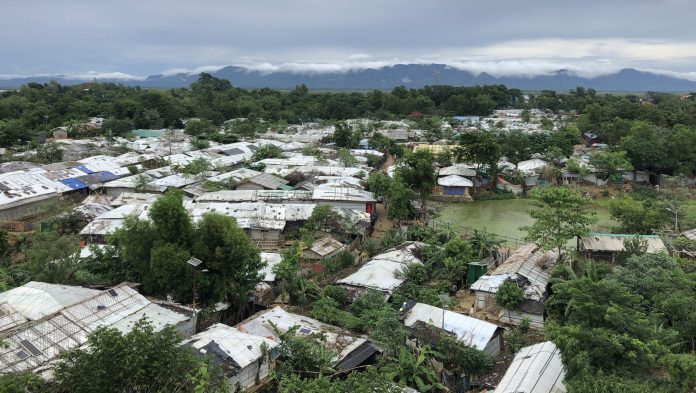Guest contributor
Ayub Khan DKL
As the world marks World Refugee Day 2025, over one million Rohingya refugees in the camps of Cox’s Bazar, Bangladesh, remain in limbo — survivors of genocide, now victims of neglect.
For the international community, June 20 is a day of commemoration. But inside the bamboo shelters of the world’s largest refugee camp, it feels more like a quiet cry. The banners say: “Refugees deserve dignity.” But what does dignity mean when food rations are slashed, education is denied, and the future is fenced in by barbed wire?
A life after genocide, but not a life of peace
We didn’t become refugees by choice. In 2017, we fled burning homes, mass killings, and systematic persecution in Rakhine State, Myanmar. Our identity as Rohingya was stripped from us, yet we carried it across the border — because it’s not just a name. It’s our history.
We came seeking safety, but found ourselves trapped. And now, 2025 brings a new kind of suffering: the slow collapse of international support.
Due to severe funding cuts, the World Food Programme (WFP) has been forced to reduce food aid to the equivalent of $0.40 USD a day. Families are surviving on less than what many people spend on a single cup of coffee. Children beg their mothers for more rice, but there is none. The hunger is constant — physical, emotional, and spiritual.
Education banned means dreams deferred
For Rohingya youth, the crisis is deeper than food. We are a generation born from conflict, raised in confinement, and now threatened with invisibility. Formal education remains banned, and opportunities are almost nonexistent. We are told to wait — but how long can a child wait to be a student? How long can a young girl wait to dream?
Resilience isn’t enough anymore
Yes, we are strong. Yes, we are resilient. But resilience without support is cruelty. Hope without action is just a hollow promise.
World Refugee Day should not be reduced to slogans and hashtags. For the Rohingya, it must be a wake-up call to the world. Our situation is not “manageable.” It is desperate.
What the world must remember
Being a refugee is not a label — it is a lived experience of loss, struggle, and survival.
Funding is not charity — it is a responsibility.
Solidarity must mean standing with us when it’s uncomfortable, not just when it’s easy.
A final plea from the camps
We don’t ask for sympathy. We ask for solidarity. We don’t want to be trapped in camps forever — we want a future, and we want justice.
As a Rohingya youth, a photographer, and a witness to my people’s suffering, I say this:
“Don’t just remember refugees on World Refugee Day. Remember us in the decisions you make, the voices you amplify, and the futures you help shape.”
Ayub Khan DKL is a Rohingya photographer and human rights activist living in a refugee camp in Bangladesh. He documents the lives, struggles, and resilience of the Rohingya community, using photography, video, and social media, to raise awareness and advocate for their fundamental human rights.
DVB publishes a diversity of opinions that does not reflect DVB editorial policy. We’d like to hear what you think about this or any of our stories: [email protected]



